(Page 32)
C GOAL Discuss the Reasons for Moving to the City
Language Expansion: City Life
A Look at the list. Discuss the questions in pairs.
| art museums coffee shops concert halls government buildings movie theaters parks and gardens shopping centers sports arenas |
1. Which places might you visit for entertainment?
2. Which places might you visit for relaxation?
3. Which places might you visit for some other purpose?
B MY WORLD What public places do you visit in your neighborhood? Are there any places on the list where you have never been to?
Grammar (See Grammar Reference pp. 148-149)
| Present Participles |
| The present participle is the -ing form of a verb. It has an active meaning and can be used in a present participle clause as a subordinate clause in a sentence. The present participle and the verb in the main clause must have the same subject. | After moving into my new apartment, I'll meet my neighbors. (= After / move into my new apartment, I'll meet my neighbors.) |
| Use the present participles to describe actions that happen at around the same time. | Turning the corner, she saw a crowded shopping center in front of her. |
| Use the present participles to explain an action or event. | Being a new resident in the area, John doesn't know the way to the city center. |
| Present Perfect Participles |
| The present perfect participle consists of the auxiliary having and the past participle of a verb. | Having found a new job, I decided to move to the city. (= After / had found a new job, I decided to move to the city.) |
| Use the present perfect participles to emphasize an action that is completed before the action in the main clause. | Having talked to all the neighbors, they started designing the garden. |
| Use the present perfect participles to describe a reason or a cause. (This is because the reason or cause happens before the action in the main clause.) | Having developed an interest in acting, she moved to Los Angeles. |
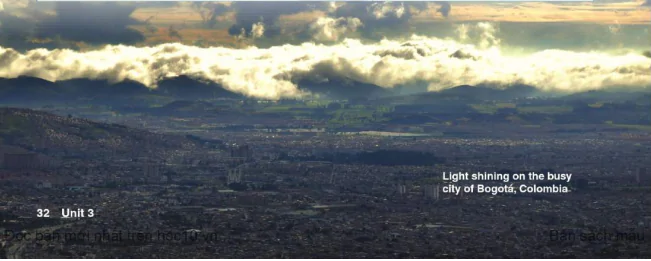
Light shining on the busy city of Bongota, Colombia
(Page 33)
C Ask and answer the questions in pairs. Use present participle clauses and the family's plan for their city vacation.
| • Monday: Arrive in Bogotá, Colombia at 1:15 p.m. • Take a taxi to the hotel; check in. • Walk to the Plaza Bolivar; take pictures. • Visit the Botero art museum. • Eat dinner at a restaurant. • Tuesday: Take a bicycle tour of the city; leave the city at 2:00 p.m. |
1. What will they do after they arrive in Bogotá?
2. What will they do after they check in at the hotel?
After arriving in Bogotá, they will take a taxi to their hotel and check in.
3. What will they do after they walk to Plaza Bolivar?
4. What will they do before they eat dinner at a restaurant?
5. What will they do before they leave Bogotá?
D Combine the sentences using the present participle or the present perfect participle.
1. Sofia lives in a suburb. She enjoys the quiet neighborhood.
2. Sofia will visit the city next Saturday. She will go to the new shopping center with Hana.
3. Hana has finished her class. She is going to have lunch with Sofia.
4. Hana has completed her project. She can visit Sofia in the suburbs.
E Read the summary of Sofia's situation. Rewrite the summary using present participle clauses when possible.
As Sofia lives in a suburb outside the city, she can enjoy the quiet neighborhoods and many green spaces, such as parks and gardens. On the other hand, because Sofia enjoys visiting her friend in the city, she is thinking about moving downtown. She has not made up her mind yet.
Conversation (Optional)
F 🎧14 Close your book and listen to the conversation. Where does each speaker live?
Sofía: What a great day it's been!
Hana: I agree! When will you come downtown to visit me again?
Sofía: Maybe I'll come next Saturday. I want to see the new shopping center.
Hana: That sounds good, but I have my yoga-in-the-park class on Saturday mornings.
Sofía: Will you be free after you finish class?
Hana: Yes. We could have lunch before we go to the shopping center.
Sofía: Great! It sounds like another perfect day in the city.
Hana: And maybe I can visit you in the suburbs soon.
G Replace the time clauses in the conversation with present participles if possible. Then practice the conversation in pairs.
✔️GOAL CHECK
Discuss the Reasons for Moving to the City
In small groups, discuss the reasons why people move to the city.
When moving to the city, people can have a greater chance of finding a job.
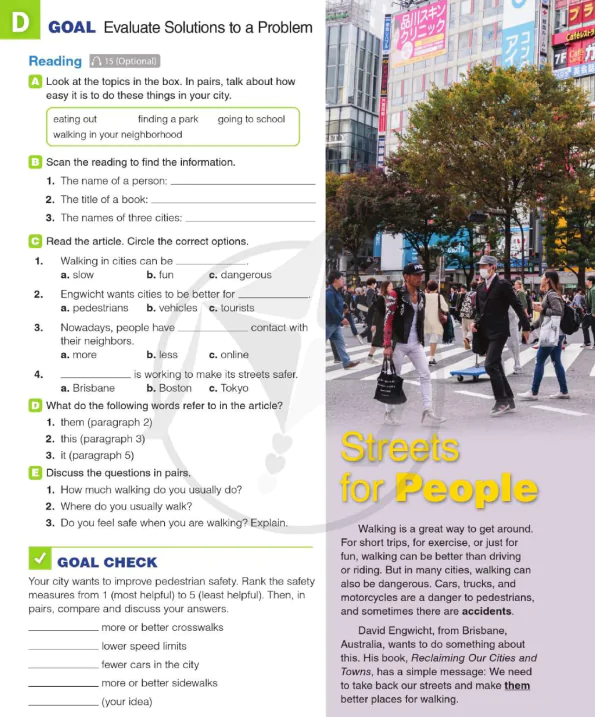
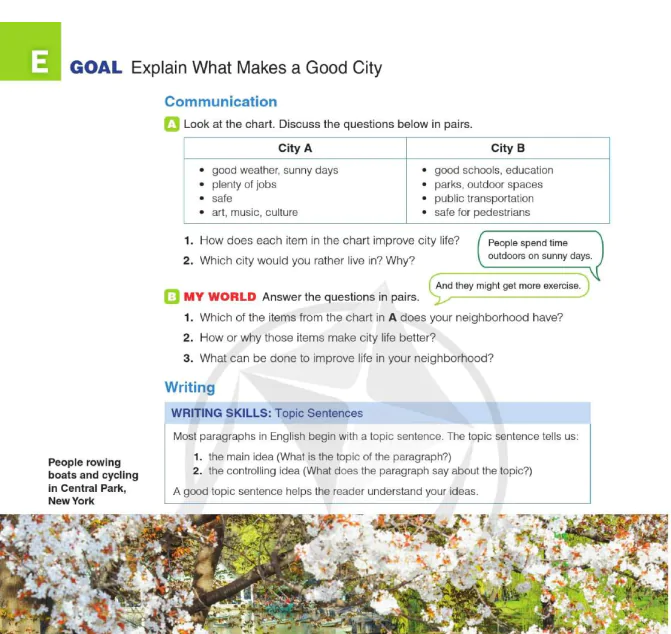
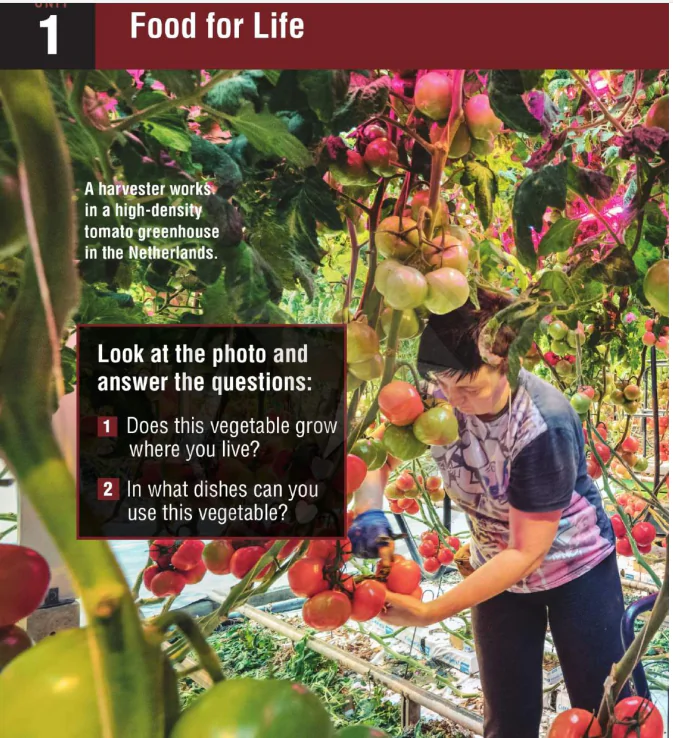
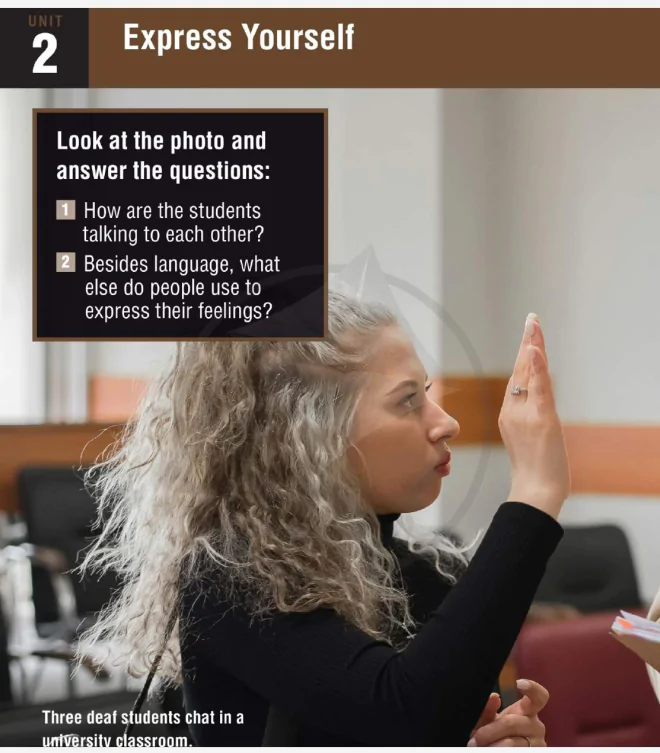
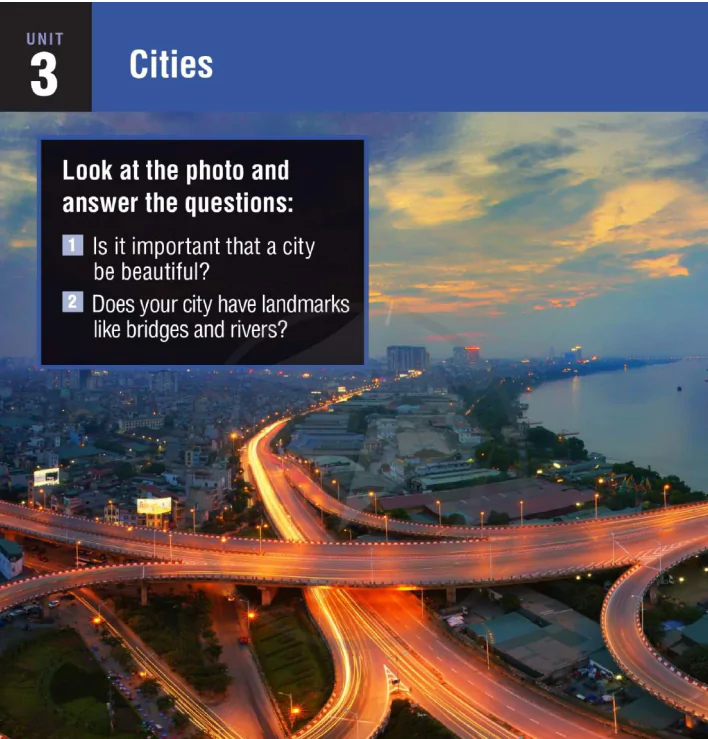
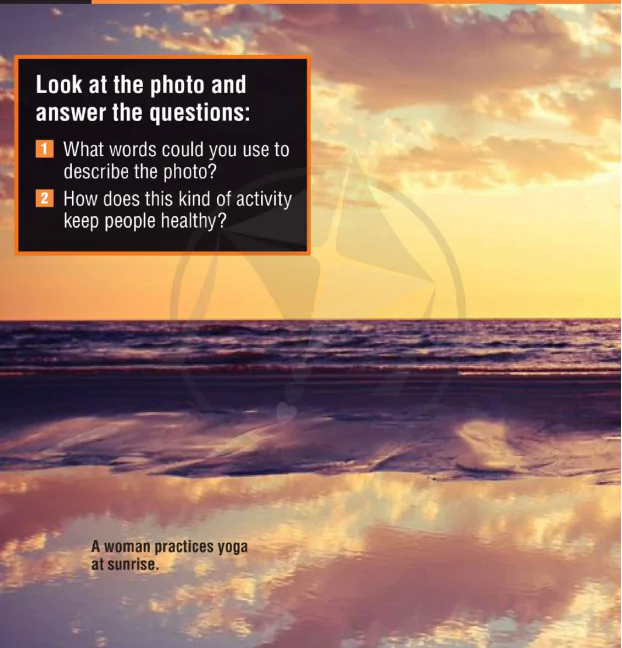

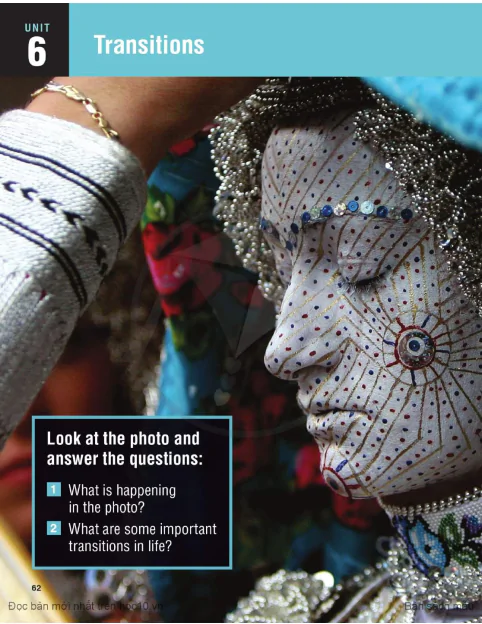


















Bình Luận
Để Lại Bình Luận Của Bạn